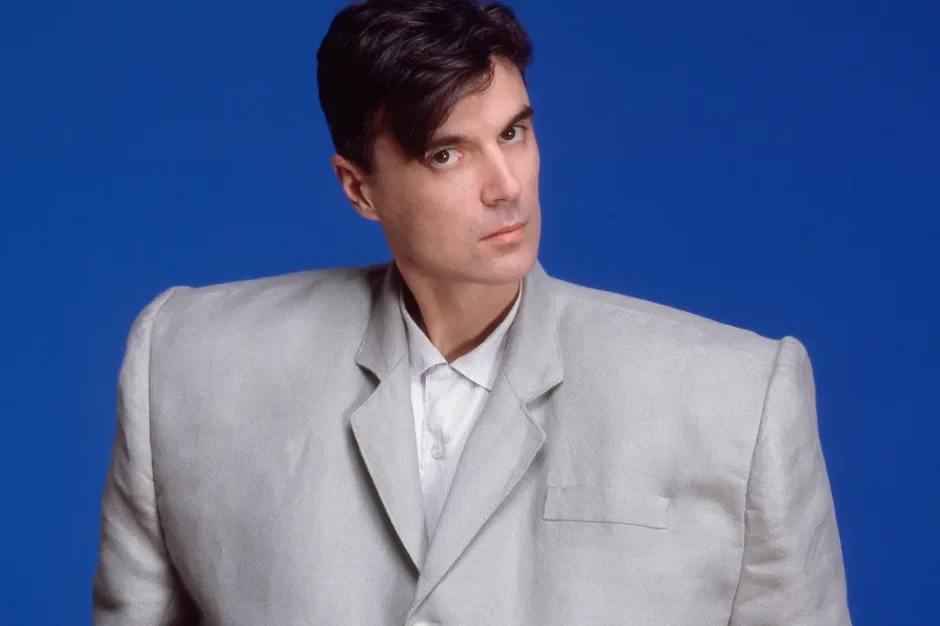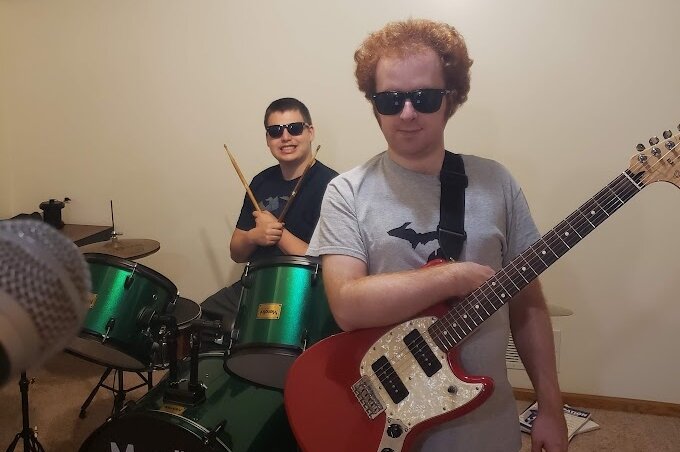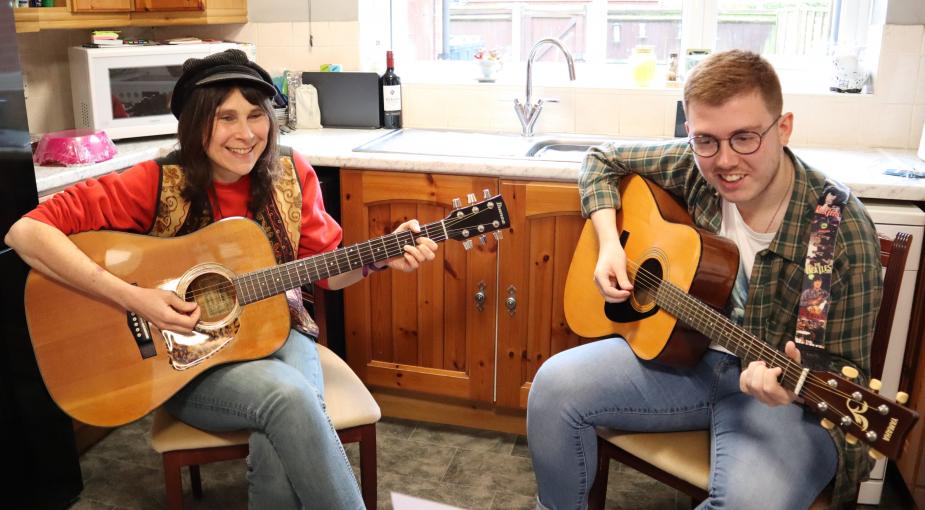Extraordinary abilities and unique views of autistic musicians are revolutionizing the music industry. Some individuals on the autism spectrum possess Savant Syndrome, and this is a big deal as it means that their skills surpass those of the general population. The neurodivergent brain processes sound differently—more precisely, intensely, and sometimes more beautifully than neurotypical brains.
Research shows that autistic brains typically demonstrate heightened sensitivity to auditory detail, exceptional rhythmic memory, and profound emotional nuance through music. Many musicians with autism exhibit perfect pitch and know how to identify musical notes without reference tones. Their exceptional attention to detail and pattern recognition abilities are the foundations of musical innovation that revolutionizes the industry. The UK has approximately 700,000 people with an autism diagnosis, and one in 100 are young people. Music therapy continues to show positive effects on autistic individuals’ wellbeing and development. These talented artists bring fresh views to composition, performance, and musical expression that will shape the musical world of 2025.
The unique brain traits of autistic musicians
Autistic musicians’ brains have unique features that give them exceptional musical abilities. Research using brain imaging shows these musicians have higher activity in their superior temporal lobe and inferior frontal areas when they make music. These brain regions play a vital role in cognitive processing, sensorimotor integration, and perception-action mediation. Such neural differences create a foundation that makes autistic musicians stand out.
Heightened auditory sensitivity
Sound affects autistic people differently than others. Research shows they are more sensitive to sounds of all types. This sensitivity can be challenging in noisy places but becomes an advantage in music.
About 20% of autistic teens can tell musical pitches apart with amazing accuracy. These young people identify musical tones with incredible precision. Children with autism also show better pitch memory. They excel at spotting subtle differences between similar-sounding instruments.
Some autistic musicians have absolute pitch (AP) – they can name musical notes without any reference. While only 1-5 people per 10,000 have this ability in the general population, it shows up more often in autistic individuals. This exceptional hearing lets them catch sound details others might miss, which improves their musical interpretation and creativity.
Pattern recognition and memory
The autistic brain shows better pattern perception that helps in music. Brain scans reveal more activity in areas linked to pattern perception and recognition. This brain setup leads to pattern recognition skills that work well in composing and performing music.
Autistic musicians often recognize and remember musical patterns better than most people. Research shows autistic children remembered melodies remarkably well over time, even when they seemed distracted during the first listening.
Some autistic children can play complex pieces after hearing them just once – this comes from exceptional pattern memory rather than music training. Their natural talent to spot, remember, and recreate musical patterns gives them an edge in composition and improvisation.
Hyperfocus and attention to detail
Deep focus on specific interests is another key feature of the autistic musical brain. Many neurodivergent musicians experience “hyperfocus” – they can concentrate deeply on musical tasks for long periods. This lets them spend hours perfecting compositions or practicing difficult passages with complete attention.
Their exceptional eye for detail shows up in many musical situations. Studies prove autistic individuals do better at tasks needing careful analysis and precision. In music, this detailed focus helps them notice and work with subtle elements others might miss.
A neurodivergent musician explains: “This focus means I can write and finish a song in hours, not days. I can zone in and get things exactly right, hear things others can’t”. This detailed attention creates chances to expand creative boundaries beyond usual approaches.
These brain features – sharp hearing, excellent pattern recognition, and intense focus – work together. They form the biological foundation that helps many autistic musicians excel and reshape the musical world.
Famous autistic musicians breaking barriers
The music world today showcases extraordinary talents whose neurodivergent minds have changed how we view autism in the arts. These famous autistic musicians bring fresh points of view that redefine the limits of creativity.
Sia and her emotional storytelling
Australian singer-songwriter Sia confirmed what many had suspected – she is autistic. Her revelation added new context to her artistic expression after the controversy around her 2021 film “Music,” which drew criticism for its portrayal of autism. Her music stands out with soaring vocals and cinematic emotion that often reflects her inner world. This helps her direct through sensory overload—something many musicians with autism understand well.
David Byrne’s analytical songwriting
The former Talking Heads frontman shows how autistic traits can boost musical creation. People described him as “cripplingly nervous” and “withdrawn” in interviews, but Byrne’s analytical mind spotted patterns where others saw chaos. He speaks openly about his Asperger’s diagnosis and credits his autism for his success as an artist. Byrne puts it simply: “However we are, we don’t know how to be another way. That’s the way we are”.
Tony DeBlois and musical savantism
Tony DeBlois, blind and autistic, demonstrates remarkable musical talent. Known as the “8th Wonder of Music,” he plays 23 instruments and knows more than 10,000 pieces by heart. People said “he couldn’t learn,” yet DeBlois graduated summa cum laude from Berklee School of Music. His remarkable story caught CBS’s attention, leading to a movie called “Journey of the Heart”. Dr. Darold Treffert considers DeBlois a “prodigious savant”—someone who “without such handicaps, would be called prodigy, or genius”.
Matt Savage’s jazz innovation
Matt Savage’s story shows how autism can turn from challenge to strength. Doctors diagnosed him at age 3, and he couldn’t stand music at first. Special therapy helped, and he taught himself to read piano music by age 6. He played with jazz legend Chick Corea when he was just 8. His talent took him to New York’s prestigious Blue Note and the Kennedy Center by age 11. Savage has released 12 albums and keeps expanding his musical horizons.
Courtney Love’s raw expression
Courtney Love, singer and actress, talks about her childhood autism diagnosis. She shared with Rolling Stone in 1994: “At an early age, I would not speak. Then I simply bloomed”. Her music reflects an intensely focused and creative mind with raw emotional power. Love’s powerful stage presence and thoughtful lyrics challenge stereotypes and inspire many autistic musicians.
Challenges autistic musicians face in the industry
Musicians with autism bring amazing talents to the industry but face major hurdles. These artists must deal with a complex world that rarely accommodates their neurological differences.
Sensory overload in live settings
Live performance settings create tough challenges for autistic musicians. Many artists feel physical pain rather than mere discomfort from loud music, flashing lights, and packed venues. Venues with poor acoustics make things worse. Sound bounces unpredictably in large, echoing spaces and creates disorientation and physical distress.
The sensory assault doesn’t stop at the stage. Restrooms with very loud flushes or hand dryers, buzzing speakers, and competing noise can trigger anxiety or meltdowns. One musician put it this way: “It’s been hammered into me time again that ‘it’s about who you know, not what you know.’ This puts many neurodivergent creatives at a disadvantage”.
Social anxiety and collaboration
The music industry’s success often depends on networking, which creates unique challenges. Industry relationships come with baffling unspoken social rules. So many autistic music artists feel they must hide their autistic traits in professional settings, despite the emotional drain.
One neurodivergent artist explains, “It’s very exhausting to be like ‘I’m fine! I’m fine all the time,’ when you’re not fine all the time”. Musicians with autism can excel in any industry role, but social expectations create unnecessary barriers to their progress.
Misunderstanding and stigma
The industry’s basic misunderstanding of autism remains the biggest obstacle. “Firmly embedded cultural stereotypes claim that autistic people are not creative, don’t have good people skills, and can only succeed in data-driven, analytical positions”.
These wrong ideas lead to alarming employment numbers—60-85% of autistic people in society remain jobless. Autistic musicians might face even higher unemployment rates in the performing arts sector.
Things are starting to look up though. Andy Edwards, director at UK Music, shares: “The most positive impact I see is people in the industry coming up to me and sharing their own experiences and having the confidence to be more open; this helps break down barriers”.
The future of music and neurodiversity in 2025
Technology in 2025 leads the way in creating a more available music industry for neurodivergent artists. Creative barriers continue to fall as autistic musicians find new ways to showcase their extraordinary talents beyond traditional limits.
Inclusive platforms and tech tools
AI now plays a key role in supporting musicians with autism. RethinkFutures uses AI predictive analytics to deliver detailed care by combining clinical information with social health factors. These tools help collect and analyze data to create customized treatment plans if you have autism.
Digital instruments and music software give autistic music artists new creative possibilities and ways to express themselves. Virtual music lessons have proven invaluable by letting students learn from home. This approach helps reduce anxiety and stress common in traditional settings.
Changing audience perceptions
Our understanding of neurodiversity has grown tremendously since 2023. PRS for Music features neurodivergent artists regularly and shows how their unique point of view adds to creativity rather than limiting it. Yorkshire indie-pop artist Mollie Coddled says she works on “creating a safe space for people to be themselves at my shows without fear of judgment” – something we see more often now.
The industry now sees how autistic traits often associate with musical excellence. Many neurodivergent artists find their differences, once seen as limitations, celebrated as “spicy minds” full of “energy, enthusiasm and emotion”.
Supportive environments for young talent
Groups focused on helping young autistic musicians thrive. Music Movement funds music programs that benefit youth on the autism spectrum through music therapy and various support initiatives.
Music for Autism celebrates exceptional talent in their annual Spotlight Artist program. Trumpeter Gabriel Medd earned this recognition for 2025. The Kodi Lee Gives Back Grant awards $1,000 scholarships to autism advocates who pursue music opportunities, helping 15 recipients each year.
The Inclusive Practice in Action 2025 meeting tackles obstacles young people face in music progression. They share practical strategies to create fair pathways in the industry. These programs show how the music world not only accepts but truly values neurodiversity today.
Summing all up
Autistic musicians are altering the musical world with their remarkable abilities. The neurodivergent brain processes sound with exceptional precision and depth that often leads to extraordinary skills like perfect pitch and pattern recognition. These unique neural characteristics give autistic musicians creative advantages that neurotypical artists might not have.
Musicians with autism face many challenges, from sensory overload during performances to industry stigma. Yet they overcome these barriers through sheer determination and creative adaptations. Success stories prove how autism improves musical expression rather than limiting it – from Sia’s emotional storytelling to David Byrne’s analytical compositions.
The music industry welcomes neurodiversity more than ever before. New technologies for neurodivergent creators and increased public awareness help break down traditional barriers. Young autistic talent gets vital support from organizations that nurture the next generation of groundbreaking artists.
This development goes beyond simple accommodation and shows real appreciation for neurodivergent views that enrich our shared musical experience. Autistic musicians’ unique approaches to composition, performance, and sound creation expand our understanding of music’s possibilities. We celebrate these remarkable artists’ continued rise and a more inclusive musical future where diverse minds cooperate to expand creative horizons.
Here are some FAQs about autistic musicians:
Which famous musicians have autism?
Several famous autistic musicians have made significant impacts across genres, including pop artist Sia and electronic music pioneer Gary Numan. Among autistic metal musicians, musicians who are autistic like Periphery’s Misha Mansoor have achieved notable success. The list of autistic musicians famous in their fields continues to grow as awareness and diagnoses increase.
Can autism be a musician?
Absolutely – many autistic musicians demonstrate exceptional musical abilities and unique artistic perspectives. Famous autistic musicians prove that autism can coexist with, and sometimes enhance, musical talent and creativity. The success of autistic metal musicians and other performers shows neurodiversity’s valuable place in music.
Are autistic people musically talented?
Many autistic individuals display remarkable musical talents, as evidenced by numerous autistic musicians famous for their skills. Some musicians who are autistic possess perfect pitch or extraordinary memory for music. While not universal, the connection between autism and musical ability appears frequently enough to be noteworthy across genres, including autistic metal musicians.
Which composer was autistic?
While historical diagnoses are challenging, many scholars suggest Mozart exhibited traits consistent with autism, making him one of the earliest potential autistic musicians famous in classical music. Contemporary composers like musicians who are autistic such as Hikari Ōe demonstrate how autism can influence compositional style. The identification of historical autistic musicians remains speculative but fascinating.
What musician was diagnosed with autism?
Singer-songwriter Susan Boyle publicly shared her autism diagnosis later in life, joining the ranks of famous autistic musicians. Among autistic metal musicians, artists like Marty Friedman have discussed being on the spectrum. These musicians who are autistic help challenge stereotypes about neurodiversity in the arts.
What kind of music do autistic people like?
Musical preferences vary widely among autistic individuals, though many autistic musicians gravitate toward complex or highly structured genres like classical or metal. Some autistic metal musicians find the intensity and technicality of the genre particularly appealing. However, just like neurotypical people, autistic musicians famous and unknown enjoy all music styles across the spectrum.

